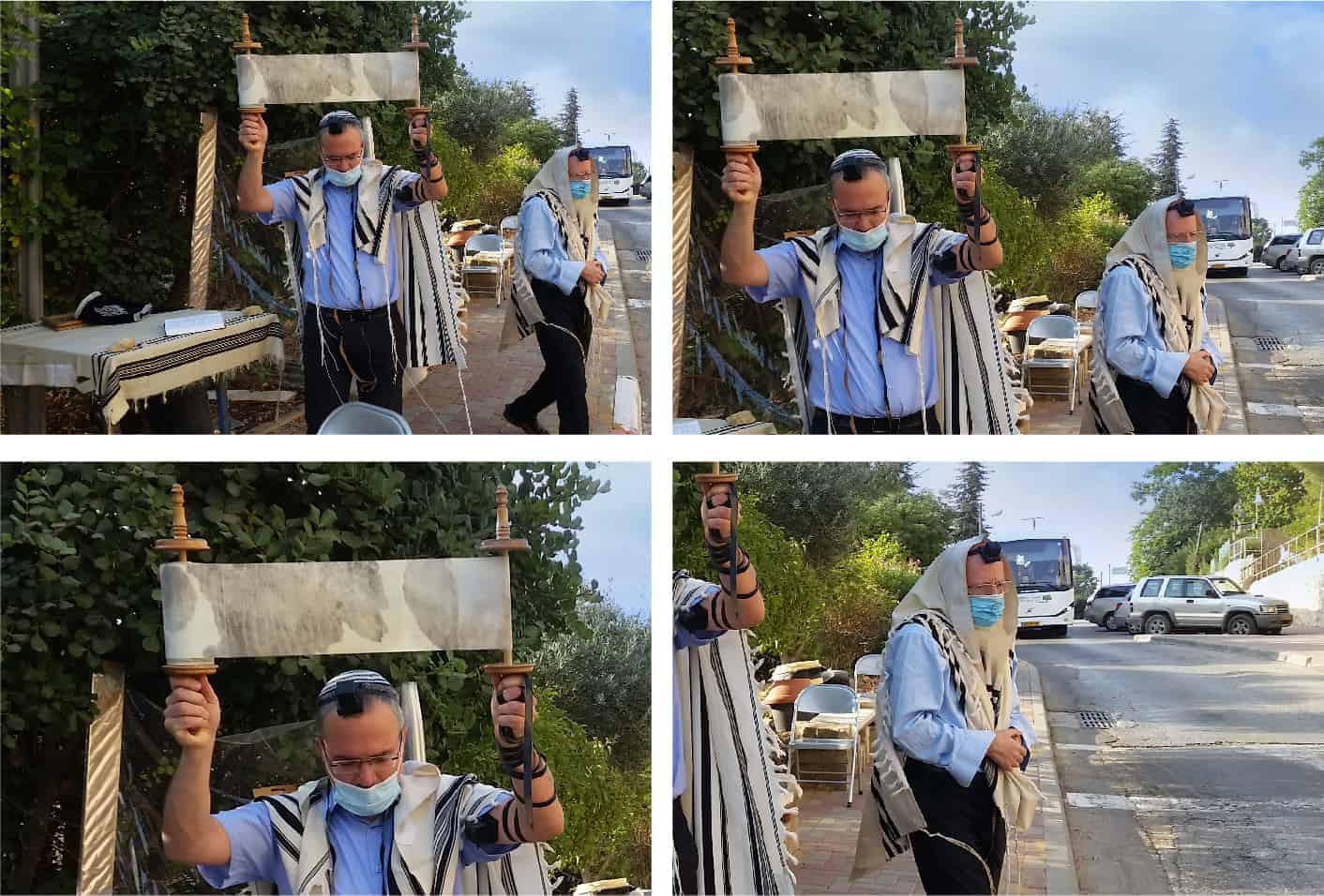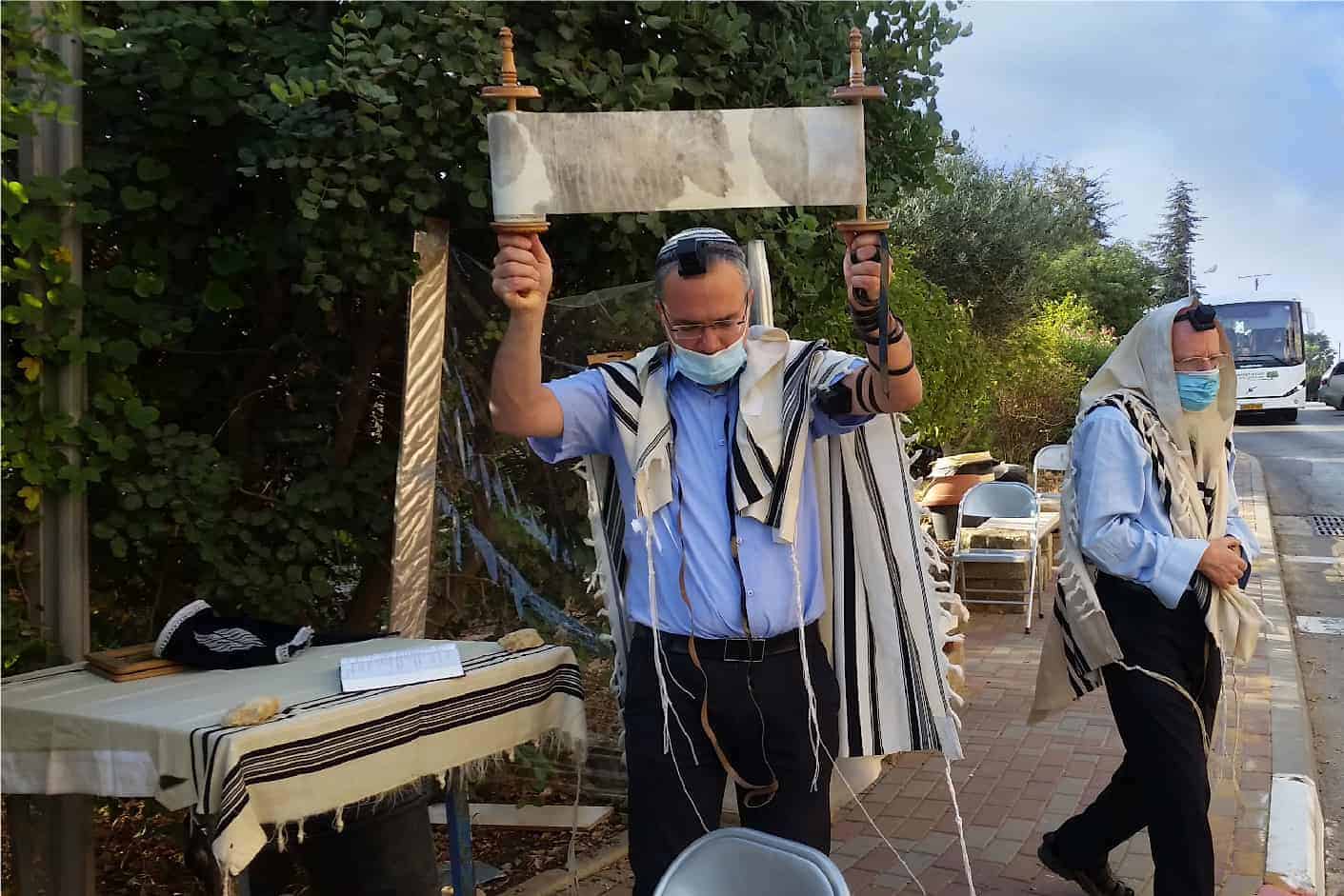Fine art photographer Yosaif Cohain – faculty member at the Bezalel Academy of Arts and Design in Jerusalem, who made Aliyah from New York in 1971, praises the “Street Minyanim” as a blessing in disguise and explains why outdoor davening has become so special to many and how it reminds him of Neomi Shemer’s song of gratitude – Al Kol Eleh
If the streets and courtyards of Jerusalem could speak, they would most likely tell us that these past six months have been of the strangest they’ve ever witnessed.
The usual hustle and bustle were replaced with silence during rush hour on weekdays, but 3 times a day and especially when Shabbat arrives, the sounds and sight of special gatherings of prayer create a new and magical atmosphere.
Now, as the High Holidays approach, and although the synagogues around Israel will probably be open for limited services, it seems that the street minyanim will draw devoted fans that would like to turn this new form of congregating into everyday norm.
A blessing in disguise
“When at Shul, it becomes extremely quiet during Tefilat Shemoneh Esrei. In contrast, during the street minyan, the silence is often interrupted with the sweetest sounds of life: a child riding a tricycle, young girls giggling while sharing a secret or a mother pushing a stroller while chatting with a toddler walking alongside her.
Every time I witness the richness of this experience, I can’t help but think about my grandparents in Europe during the Holocaust, for whom this reality would be an impossible fantasy, and realize the wonder we are living; Jews praying in the streets with full confidence and security filling the air with loud prayer without the slightest concern. This is a true miracle. A dream of millennia to witness and be a part of; a reality which can only happen in Israel.

When it’s time for Birkat Kohanim, instead of raising my hands and turning the usual half turn towards the congregation, I take extra time to complete a full circle in an attempt to contain all the blessings around me. The changing sounds of the streets, the chirping birds, the echoes that extend from the pavement to the balconies and rooftops, the familiar faces from the neighborhood, the passersby whom I don’t recognize, the curious children and above all – the blessed realization that this pandemic has bestowed upon us in that it reminds us that the Shechina can not only present in synagogues; it has cascaded onto the welcoming streets of Israel.”
During these moments, he says that he often reflects on Neomi Shemer’s song and particularly on its last verse:
Over all these things, over all these things
Please guard for me my good God.
Over the honey and the sting
Over the bitter and the sweet.
A tree rustles in the wind
In the distance, there’s a shooting star
The wishes of my heart are being written now.
Please guard all these things for me
And over my beloved ones
Over the quiet, the tears and this very song.
Over all these things…
“Shemer’s gratitude for our imperfect reality seems to be so relevant in today’s changing world. Now, when we redefine everything: our routine, relationships, and rituals, we should acknowledge these minyanim and their beneficent change to our communities and cherish them for the future, even after the pandemic will become a distant memory” – says Yosaif.
Ushering in Shabbat, Park Eight style
It seems that the street minyanim extend their influence as time goes by and form strong community bonds. For Example, Yosaif says that his minyan evolved into a commune Kiddush and enjoys new participants every week.
Like the outdoor minyanim that attract young families with children, parents and grandparents alike who are drawn to the sense of community, you will find the same energy in the weekly traditional gathering at the end of Dina street in the heart of Baka in Jerusalem. On Friday afternoons at Park Eight, an early gathering of residents marks the prelude for Kabbalat Shabbat where the landscaped courtyard provides a beautiful backdrop for a drink and a blessing shared by all in the wishing of a peaceful Shabbat.


